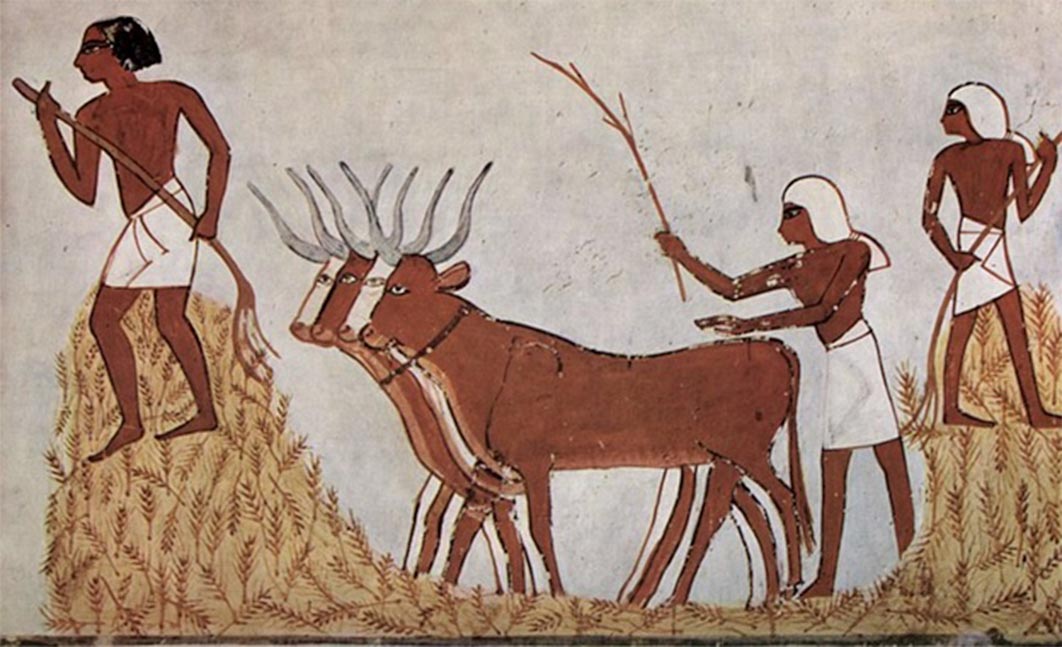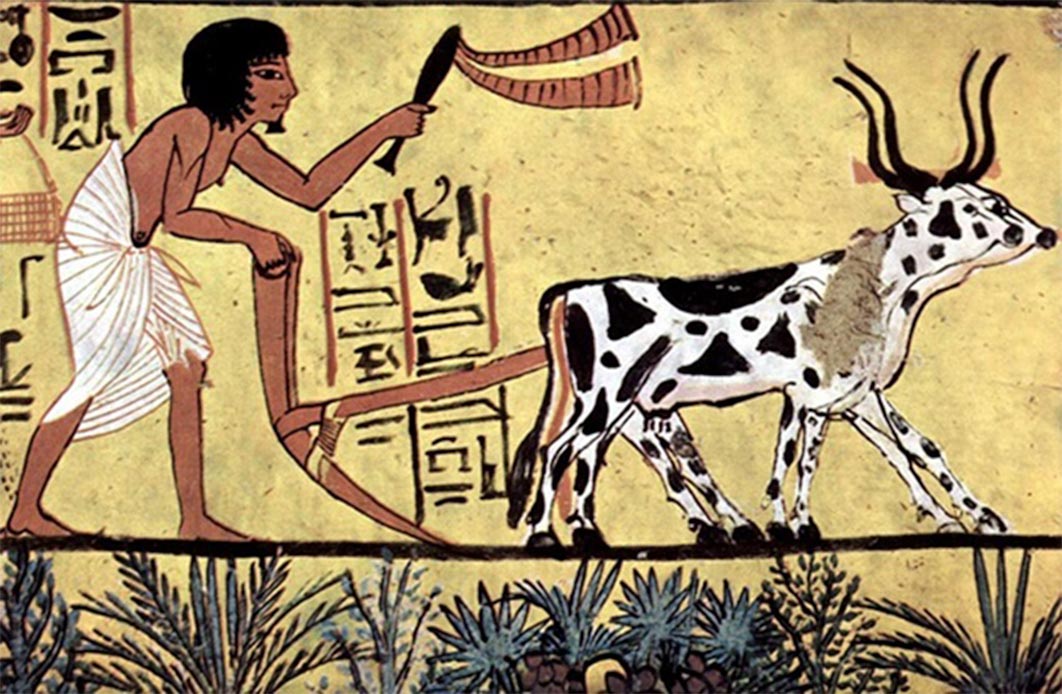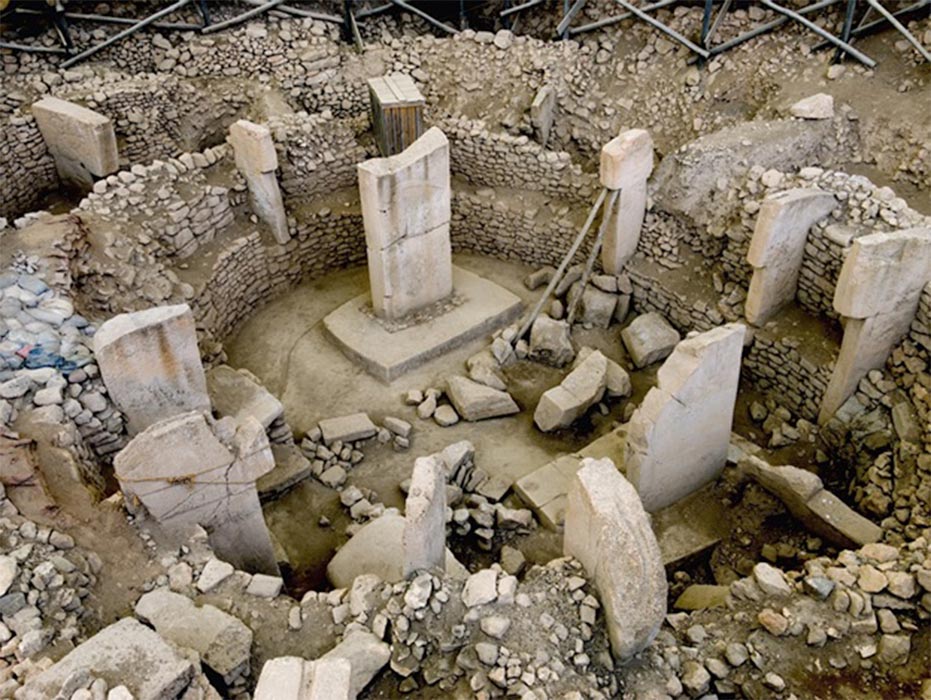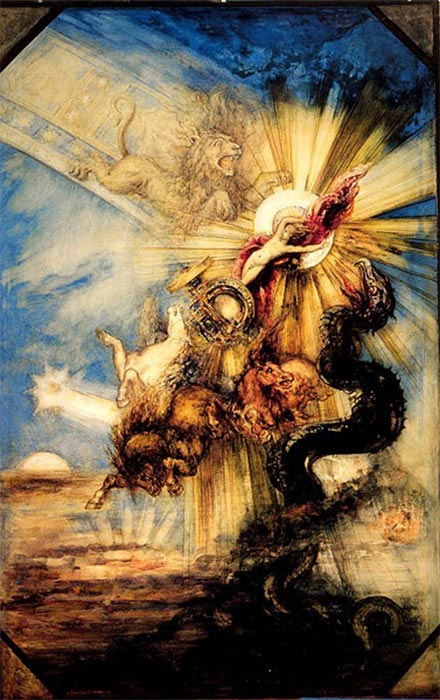
Agriculture First Versus Göbekli Tepe: Prehistory Revisited
Discovering the origin of civilisation is the holy grail of anthropology and archaeology. Essentially, this means understanding how man transformed from un-civilised Palaeolithic hunter gatherers to civilised Neolithic specialists dependent on agriculture. It used to be thought that agriculture itself was the key to this transition, as it enabled larger communities to settle in one place and develop the specialities that signal the arrival of civilisation. No longer was the desperate search for food an all-consuming activity that forced people to continually migrate like animals. And since agriculture is thought to have developed first in a region of the Near East known as the Fertile Crescent, around 10,000 to 11,000 years ago, the Fertile Crescent, it was believed, must hold the key to the origin of civilisation.

Ancient agriculture. Mural in the burial chamber of Sennedjem (circa 1200 BC) (Public Domain)
Agriculture First vs The World’s First Temple?
But this ‘agriculture first’ model is challenged by Göbekli Tepe, the world’s first temple. Situated on top of a hill in southern Turkey at the heart of the Fertile Crescent, this ancient megalithic construction, many times the size of Stonehenge, and yet at least twice as old, has quickly become the most important archaeological site in the world. This is because it screams ‘civilisation’, and yet pre-dates the establishment of agriculture by thousands of years. Even more incredibly, its giant stone pillars are adorned with strange animal symbols which appear to communicate information – they seem to be an early form of proto-writing. Perhaps they can even reveal how civilisation began?

Ancient Site of Göbekli Tepe in Southern Turkey (Brian Weed/ Abode Stock)
In the words of one leading archaeologist, Ian Hodder many people think Göbekli Tepe: ‘…changes everything…It overturns the whole apple cart. All our theories were wrong.’ But this view was expressed before Göbekli Tepe’s animal symbols were decoded. Only now that one can begin to read the meaning of these symbols, can one truly appreciate the scale of the change required. In fact, Göbekli Tepe’s impact reaches beyond the boundaries of archaeology and anthropology, into the heart of an age-old scientific debate that has raged for millennia. It even rocks the foundations of science itself. So, to say that Göbekli Tepe ‘changes everything’ is a massive understatement.
The Role of Belief in Science
In a sense, religion was the science of its day. It tried to answer many of the same questions one now tackles through the scientific method, such as the origin of our world, the origin of mankind, the nature of objects in the sky and their influence on man, and so on.
Ancient Greek philosophers tried to provide more rational answers to these perennial questions. Prominent among these was the role of great catastrophes in prehistory. For example, Plato tells the story of Phaeton, which although cast in the form of a myth was thought to actually describe one of many great cosmic disasters to have reset civilisation on a cyclic timeline. Aristotle, Plato’s student, on the other hand developed his own model of a geocentric universe as a system of unchanging ‘harmonious spheres’. Great cosmic catastrophes were thus eliminated.





